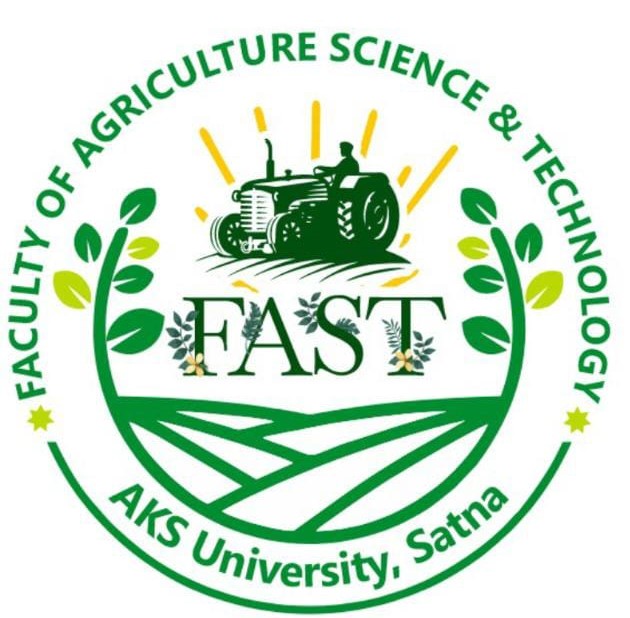Department of Horticulture
About the Department
Vision
Mission
HOD's Desk
Graduate Attributes (GA)
About the Department
Overview of the Department
Established in 2013, the Department of Horticulture at AKS University, Satna (M.P.) offers highly specialized programs to meet the growing needs of India, both domestically and internationally. We offer M.Sc. Horticulture in Vegetable Science and Ph.D Horticulture programs with specializations in Vegetable Science. At AKS University, we are committed to equipping our students with the skills and knowledge required to fulfill the needs of India, particularly Madhya Pradesh. Our comprehensive curriculum prepares you for real-world challenges and ensures you are ready to make a meaningful impact in the industry. The demand for trained manpower in the field of Horticulture is skyrocketing. With horticultural crops earning foreign exchange for the country and India’s position as the second-highest producer of fruits and vegetables globally, there has never been a better time to pursue a career in horticulture. Our programs open doors to diverse opportunities in farming, processing, marketing, research, and more.
Vision
Vision
Creating excellence in teaching and research activities in the field of horticulture. Besides, for getting abundant production of vegetables, fruits and ornamental plants, the Hi-tech Horticulture is proposed to adopt.

Mission
Mission
1: The goal of us is to develop excellence in teaching and research work in the field of horticultural crops.
2: In order to enhance the livelihood income of rural prosperity by obtaining excellent research findings through the conduct of experiments in field of horticulture.
3: In future, applied research work will be conducted which will further improve the fruit yield as well as vegetables.
4: Different technologies which are fruitful in pushing up the product of horticultural crop they will be also disseminated to the farmers through RAWE programme under UG level.
2: In order to enhance the livelihood income of rural prosperity by obtaining excellent research findings through the conduct of experiments in field of horticulture.
3: In future, applied research work will be conducted which will further improve the fruit yield as well as vegetables.
4: Different technologies which are fruitful in pushing up the product of horticultural crop they will be also disseminated to the farmers through RAWE programme under UG level.
HOD's Desk
Dr. Mohni Parmar
M.Sc. Hort. (Fruit Science), Ph.D. Hort. (Fruit Science), RBSKVV Gwalior
Head of the DepartmentDepartment of HorticultureAKS University, Satna (M.P.) India – 485001

Message
We are committed to excellence in education, research, and innovation in the field of horticulture and sustainable agricultural practices. Under the leadership of our esteemed Head of Department, we strive to equip students with the knowledge and skills necessary to address global horticultural challenges through advanced cultivation techniques, plant health management, and cutting-edge greenhouse, pollyhouse and nursery practices. With a dedicated team of experienced faculty members, state-of-the-art laboratories, and strong industry collaborations, we provide a dynamic learning environment that fosters scientific curiosity and practical problem-solving. We encourage our students to engage in groundbreaking research, participate in hands-on training, and contribute to the development of sustainable and high-yielding horticultural systems.
As we continue to advance in horticultural sciences, we invite students. researchers, and industry professionals to collaborate with us in shaping the future of horticulture. Together, we can work towards enhancing food security. improving crop quality, and prorfgting environmentally responsible farming practices. We look forward to your journey with us and hope you find inspiration and success in our department.
As we continue to advance in horticultural sciences, we invite students. researchers, and industry professionals to collaborate with us in shaping the future of horticulture. Together, we can work towards enhancing food security. improving crop quality, and prorfgting environmentally responsible farming practices. We look forward to your journey with us and hope you find inspiration and success in our department.
Graduate Attributes (GA)
Graduate Attributes (GA)
Graduate Attributes refer to the comprehensive set of knowledge, skills, and attitudes that students are expected to possess upon graduation. These attributes are generic in nature and are common across all academic programs.
1. Technical Knowledge: Graduates will possess a solid foundation in the scientific principles and practical techniques related to horticulture. This includes plant biology, soil science, pest and disease management, irrigation systems, crop production, and sustainable agricultural practices. They will be equipped to apply this knowledge in real-world settings to improve plant health, productivity, and environmental sustainability.
2. Problem Findings: Graduates will be able to identify and analyze complex issues within horticultural systems, including plant health problems, environmental stress factors, and inefficiencies in cultivation practices. They will use observation, data collection, and scientific reasoning to recognize existing or potential problems and lay the groundwork for effective solutions.
3. Skill Development: Students will develop a wide range of practical and technical skills essential for modern horticultural practices. This includes hands-on experience in plant propagation, nursery management, soil preparation, pruning, pest control, irrigation techniques, and the use of horticultural tools and technology.
4. Research Oriented Learning: Horticulture is an educational approach that emphasizes the integration of scientific research practices into the learning process of horticulture students. This method aims to enhance critical thinking, problem-solving, and innovation skills by engaging students directly with the scientific method, experimentation, data analysis, and real-world agricultural challenges.
5. Technical Development: Horticulture refers to the advancement and applications of science and technology to improve, Create, select, and apply appropriate techniques, resources, and modern IT tools including prediction and modeling to complex activities with an understanding of the limitations.
6. Contribution in Society Development: Horticulture plays a vital role in societal development, not just by providing food, but by influencing health, economy, employment, environment, and even social well-being.
7. Environment and Sustainability: As the world faces increasing pressure from climate change, pollution, and biodiversity loss, sustainable horticultural practices offer powerful solutions to reduce environmental impact while ensuring food security, economic development, and ecosystem balance.
1. Technical Knowledge: Graduates will possess a solid foundation in the scientific principles and practical techniques related to horticulture. This includes plant biology, soil science, pest and disease management, irrigation systems, crop production, and sustainable agricultural practices. They will be equipped to apply this knowledge in real-world settings to improve plant health, productivity, and environmental sustainability.
2. Problem Findings: Graduates will be able to identify and analyze complex issues within horticultural systems, including plant health problems, environmental stress factors, and inefficiencies in cultivation practices. They will use observation, data collection, and scientific reasoning to recognize existing or potential problems and lay the groundwork for effective solutions.
3. Skill Development: Students will develop a wide range of practical and technical skills essential for modern horticultural practices. This includes hands-on experience in plant propagation, nursery management, soil preparation, pruning, pest control, irrigation techniques, and the use of horticultural tools and technology.
4. Research Oriented Learning: Horticulture is an educational approach that emphasizes the integration of scientific research practices into the learning process of horticulture students. This method aims to enhance critical thinking, problem-solving, and innovation skills by engaging students directly with the scientific method, experimentation, data analysis, and real-world agricultural challenges.
5. Technical Development: Horticulture refers to the advancement and applications of science and technology to improve, Create, select, and apply appropriate techniques, resources, and modern IT tools including prediction and modeling to complex activities with an understanding of the limitations.
6. Contribution in Society Development: Horticulture plays a vital role in societal development, not just by providing food, but by influencing health, economy, employment, environment, and even social well-being.
7. Environment and Sustainability: As the world faces increasing pressure from climate change, pollution, and biodiversity loss, sustainable horticultural practices offer powerful solutions to reduce environmental impact while ensuring food security, economic development, and ecosystem balance.

